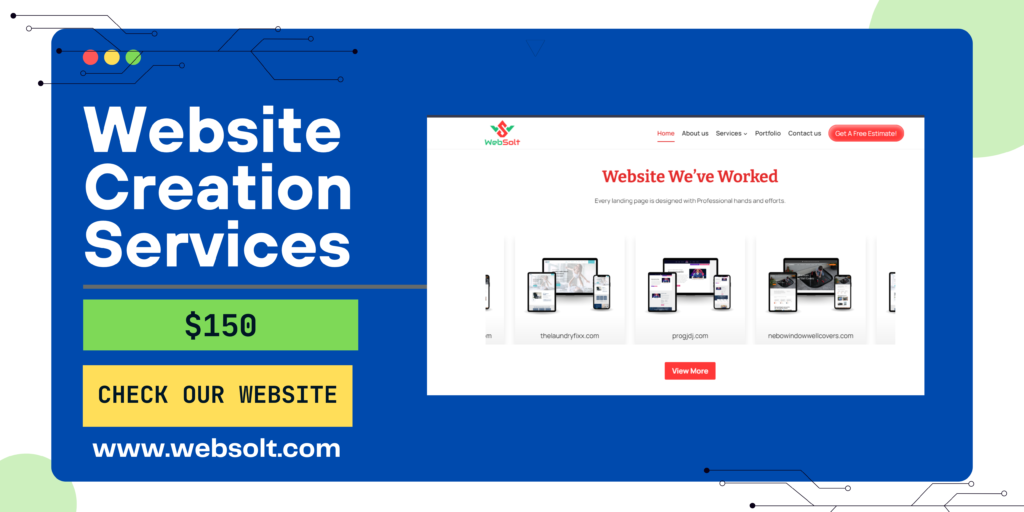The Benefits of SEO Audit & Planning for Your Website’s Success
In today’s digital landscape, search engine optimization (SEO) plays a critical role in determining the visibility, traffic, and overall success of a website. To maintain a competitive edge, businesses must continuously assess and optimize their SEO strategies. One of the most effective ways to do this is through regular SEO audits and strategic SEO planning. This article explores the benefits of SEO audits and how comprehensive SEO planning can enhance your website’s performance.
What is an SEO Audit?
An SEO audit is a comprehensive analysis of your website to identify areas where it can be optimized for better search engine rankings. This process involves evaluating various elements, including:
- On-page SEO (meta tags, keywords, headers)
- Off-page SEO (backlinks and external factors)
- Technical SEO (site speed, mobile-friendliness, and indexing)
- Content quality and relevance
- User experience (UX) and interface design
- Competitor analysis and industry trends
An SEO audit reveals where your website currently stands and what can be improved. Once an audit is complete, the next step is SEO planning, which outlines a long-term strategy for optimizing and improving your site’s visibility on search engines.
The Benefits of Conducting an SEO Audit
1. Identifying Technical Issues
Websites can face a variety of technical issues that prevent search engines from crawling or indexing pages effectively. During an SEO audit, you can uncover problems like:
- Broken links: These hurt your website’s authority and user experience.
- Slow page speed: A slow website can lead to higher bounce rates and lower search rankings.
- Mobile-friendliness issues: Search engines like Google prioritize mobile-friendly websites, making it crucial for your site to work seamlessly on all devices.
- Crawling and indexing errors: If search engines cannot crawl or index your pages correctly, they won’t appear in search results.
By identifying these technical problems early, you can resolve them before they affect your search rankings.
2. Optimizing On-Page SEO Elements
The on-page elements of your website, such as meta tags, keyword usage, headers, and image alt text, all contribute to SEO. An audit helps you assess:
- Whether your pages have the right keywords in the title tags, meta descriptions, and headers
- If your images have proper alt text that search engines can understand
- Whether your content is structured using appropriate H1, H2, and H3 tags for better readability and indexing
Optimizing on-page SEO elements improves the relevance and authority of your content, making it easier for search engines to rank your pages higher.
3. Enhancing User Experience
User experience (UX) is a key factor in SEO. If users find your website difficult to navigate, too slow to load, or cluttered with irrelevant content, they’re more likely to leave. This increases bounce rates and negatively impacts your SEO performance.
An SEO audit evaluates the user experience by analyzing factors like website speed, mobile responsiveness, and overall design. By improving these elements, you can offer visitors a smoother, more engaging experience that keeps them on your site longer and boosts search engine rankings.
4. Assessing Backlink Profile
Off-page SEO, particularly backlinks, is a major determinant of how search engines perceive your website’s authority. A strong backlink profile shows that other reputable websites trust your content, improving your ranking potential.
During an SEO audit, your website’s backlink profile is evaluated to ensure that you have high-quality, relevant backlinks. If your site has a lot of toxic or spammy backlinks, they can be disavowed to prevent them from harming your SEO performance.
5. Uncovering Content Gaps and Opportunities
Content is king in the world of SEO. An audit reviews the quality and relevance of the content on your site, identifying areas where you can improve or expand.
- Content gaps: You might find topics or keywords you’ve missed that could drive more traffic to your site.
- Low-quality content: If some of your pages have thin or outdated content, they may not perform well in search rankings. Improving or updating this content can lead to better performance.
By uncovering these opportunities, you can tailor your content to better meet the needs of your audience while increasing its value in search engine rankings.
The Importance of SEO Planning
After conducting an audit, the next step is to develop a comprehensive SEO plan. This strategic process involves setting goals, identifying key areas for improvement, and implementing a timeline for achieving those objectives.
1. Developing a Long-Term Strategy
SEO is not a one-time effort but an ongoing process. With a well-thought-out plan, you can outline long-term goals such as:
- Improving organic traffic over the next 6-12 months
- Boosting conversion rates from search engine visitors
- Ranking higher for specific high-value keywords
This long-term strategy ensures that you’re making consistent progress towards your SEO goals.
2. Allocating Resources Effectively
SEO planning helps you allocate resources—both time and budget—more effectively. By identifying priority areas (such as technical SEO fixes, content creation, or backlink building), you can direct resources toward the tasks that will have the biggest impact on your rankings and traffic.
3. Competitor Analysis and Benchmarking
A critical aspect of SEO planning involves analyzing your competitors. During this process, you can:
- Identify keywords and content strategies that are helping your competitors rank higher.
- Benchmark your website’s performance against theirs to see where you can make improvements.
This insight helps you stay ahead of competitors and adjust your strategy based on market trends and industry demands.
4. Prioritizing Key SEO Tasks
With a solid SEO plan, you can prioritize tasks based on urgency and impact. For instance, fixing a critical technical issue like a slow-loading homepage would take precedence over minor keyword adjustments.
Prioritizing tasks ensures that you’re focusing on what will drive the most significant improvements first.
5. Continuous Monitoring and Adjustment
SEO is not a static process, and search engine algorithms constantly evolve. With an SEO plan in place, you can continuously monitor your website’s performance and make adjustments as necessary.
By regularly reviewing your SEO metrics—such as organic traffic, keyword rankings, and bounce rates—you can spot trends and fine-tune your strategy to stay ahead of changes in the SEO landscape.
Conclusion
SEO audit and planning are essential for any business that wants to improve its online visibility and performance. An SEO audit helps you identify technical issues, optimize on-page elements, and uncover content opportunities, while strategic SEO planning ensures long-term success. Together, these processes create a roadmap for ongoing improvements, helping your website achieve higher rankings, increased traffic, and better user engagement.
Investing in regular SEO audits and strategic planning is one of the best ways to stay ahead of competitors, attract more visitors, and ultimately grow your business. By embracing these practices, you’re not just optimizing your website for search engines—you’re optimizing it for success.







